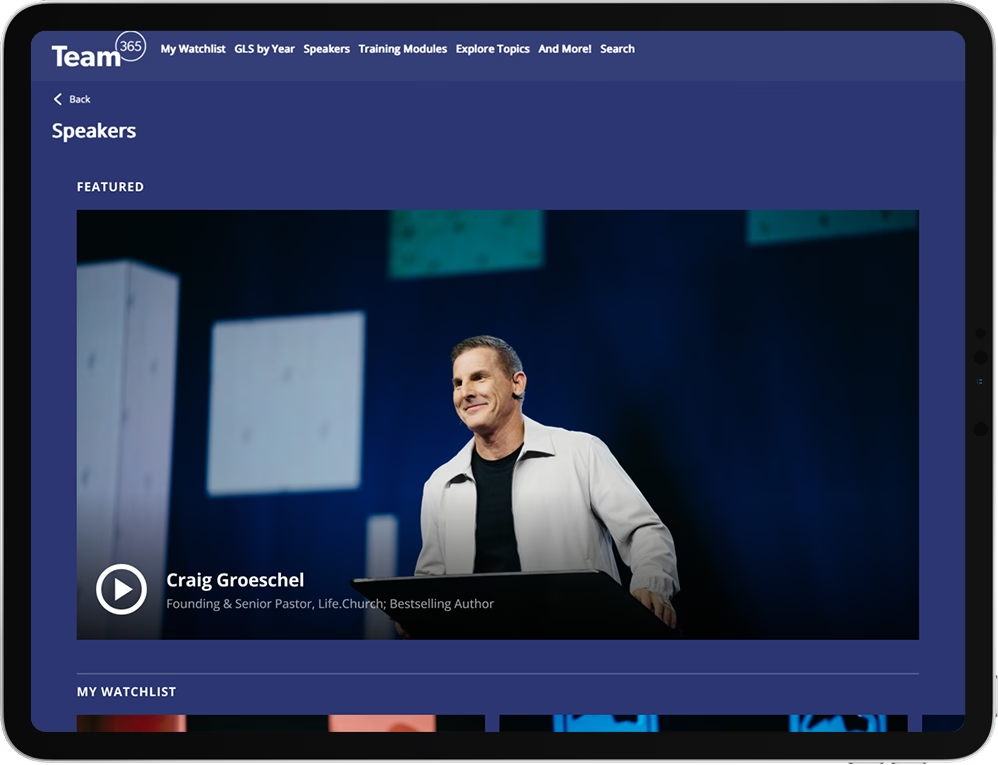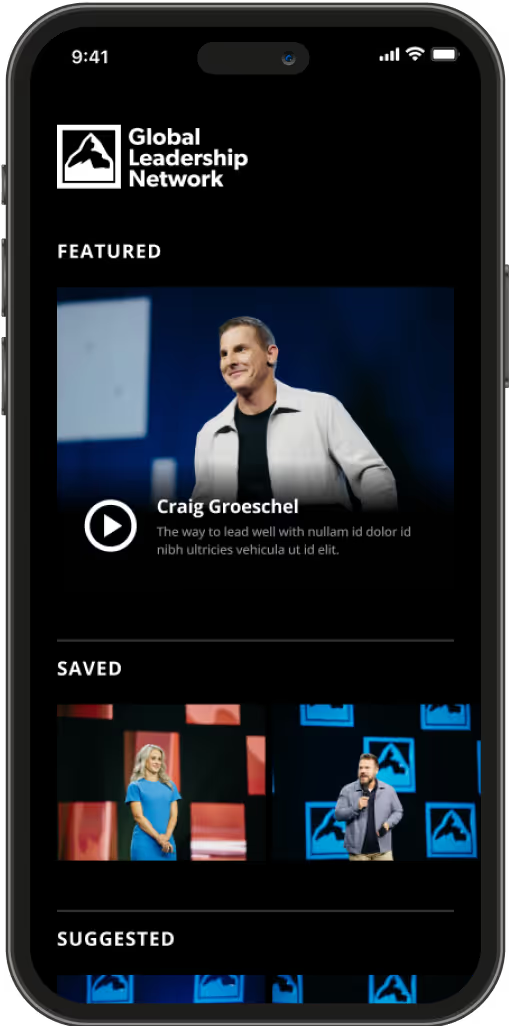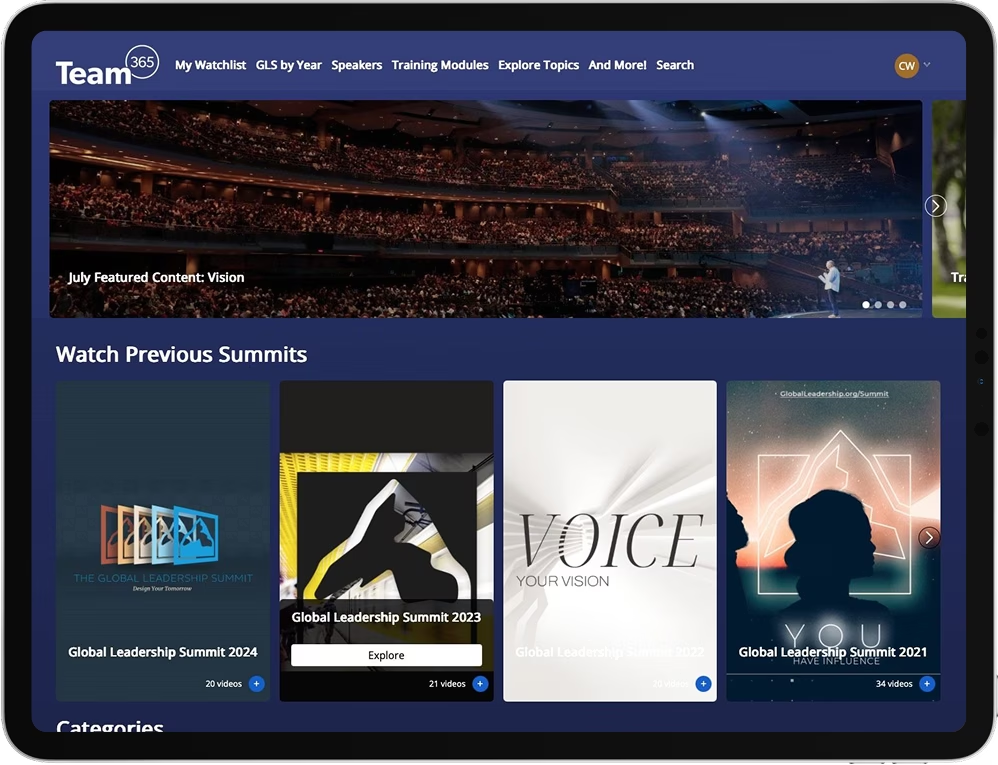As a communicator, one of the best questions that was ever asked about my preparation process was: How are you managing your energy?
Up until that point, I’d spent most of my time focused on crafting great content and visuals versus paying much attention to how I was physically preparing myself to deliver that content.
I came up with a strategy that included a commitment to how I’d manage my physical energy before, during and after each sermon or presentation. This strategy included great sleep at least two consecutive nights beforehand, eating well, and then being intentional about my activity and outputs immediately after I stepped off a stage. That one question has made a world of a difference in how I prepare, deliver and debrief my messaging.
Energy is what makes us effective in our workplaces, homes and personal relationships.
For years, great thinkers have been asking leaders like you and me questions like this to help us tweak and improve upon our personal effectiveness—all of which, at their core, require some sort of energy management.
Whether the strategy helps us manage the operational and strategic legs of our businesses and organizations—or our emotional and physical energy as we seek to become our best selves, energy is what makes us effective in our workplaces, homes and personal relationships.
But there’s another type of energy management that plays a key part in how we look at our personal effectiveness: relational energy.
This time, the question came from a former manager as we were both headed home from work:
How’d you end your day today? he asked.
I paused and let him know that I’d sent a few e-mails to volunteers, had organized some files and then had met with a student who was a part of our ministry.
How’d you feel after your meeting with her? he asked.
I thought it was interesting that he’d only singled out my meeting with the student. With curiosity, I responded: It was pretty taxing, actually. She’s going through a pretty hard time—and even though I’m glad I met with her, I’m pretty wiped out.
Bingo.
He latched onto my response right away and turned it into a teaching moment I’ll never forget. He shared this wisdom:
- In addition to what I do (my outputs and managing my operational energy)
- And how I do it (tapping into my emotional and physical energy)
- I had to start paying attention to who was a part of my daily rhythms.
Our relational energy, if we take the initiative to think it through, could exponentially maximize the energy we have to exert in other areas of our work.
Because paying attention to the strategy of who was a part of my day could have a major impact on the energy I bring to other parts of my work and ministry.
Our relational energy, if we take the initiative to think it through, could exponentially maximize the energy we have to exert in other areas of our work.
By paying attention to how human and relational interactions could potentially make us feel before we engage them, we can—at least sometimes—strategically order our days to give us the perfect recipe for maximum energy.
It works like this:
1. Take a quick self-assessment
When do you do your best work or thinking as an individual contributor? If you’re like me, your best thinking happens in the early hours of the morning, before e-mails start to fly or the patter of small feet can be heard overhead.
2. Protect that time with your life
Do not—I repeat, do not schedule any meetings—even with people or teammates you enjoy—in the span of those hours. I’ll never schedule early-morning meetings before 8:30 a.m. I spend 4:45-7:30 a.m. either working out, writing or spending quiet time alone. It’s the most productive time of my day, and the time when I receive the maximum input of energy that I can then use throughout my day.
3. Take inventory of your week
At the beginning of your week, look at your calendar. Take note, not just of what you have to get done, but who is a part of those meetings. Are they team meetings? One-on-ones? Go through your calendar and either mark or color-code each block of your calendar with green/yellow/red based on the energy you feel that meeting with either give to you or require of you, given the people who are involved. For me, team building meetings or learning sessions were always green. One-on-ones with core volunteers were usually green or yellow. Performance improvement conversations were always red.
4. Look at the overall pattern of your week
Are all your “red” conversations in one block on Thursday? If they’re all before lunch time, you’re going to be tanked. Take time to either re-shuffle or intentionally add in “green” blocks of time that give you rest, rejuvenation or other positive inputs of energy so that your net average of relational energy is at least “yellow” at the end of each day.
5. As much as it’s within your power, end your day on green
If you have complete flexibility over your schedule, do what you can to end your day with a meeting that brings you life—either because of the people involved or the personal energy it re-deposits. If you end up going straight home or to the gym afterwards, it’s a sure-fire way to guarantee that, at least most days, you’re aligning your relational energy in a way that sets you up for maximum energy and effectiveness over the long-haul.
Having worked in human resources, operations, youth ministry, creative programming and adult ministry, I can tell you this: my work was always important, but I never knew just how important my relational energy was to how I was doing my work.
Whatever work you put your hands to, my hope is that it’s life-giving, productive and makes a difference in the lives of others. If you’re like me and truly believe that people are both the greatest why and how, let’s serve them well by bringing the best of all our energy.
Related

Every Week Is Shark Week for Me

The Most Important Question Every Leader Needs to Ask

The Enemy of Our Ego—GLSnext Event Series Notes
.jpg)
Leading the Spark: 5 Books on the Intersection of Creativity and Leadership

“Thank You for Seeing Us as People”: Leadership and Hope Inside Graham Correctional Center

The Tech CEO who sold his home to live with the formerly homeless
Leadership That Lasts
Team365 isn’t just a platform. It’s a commitment to grow, lead and live with purpose — every single day. Whether you’re here for content, community or clarity, you’re in the right place. Your leadership matters. Let’s keep going.





